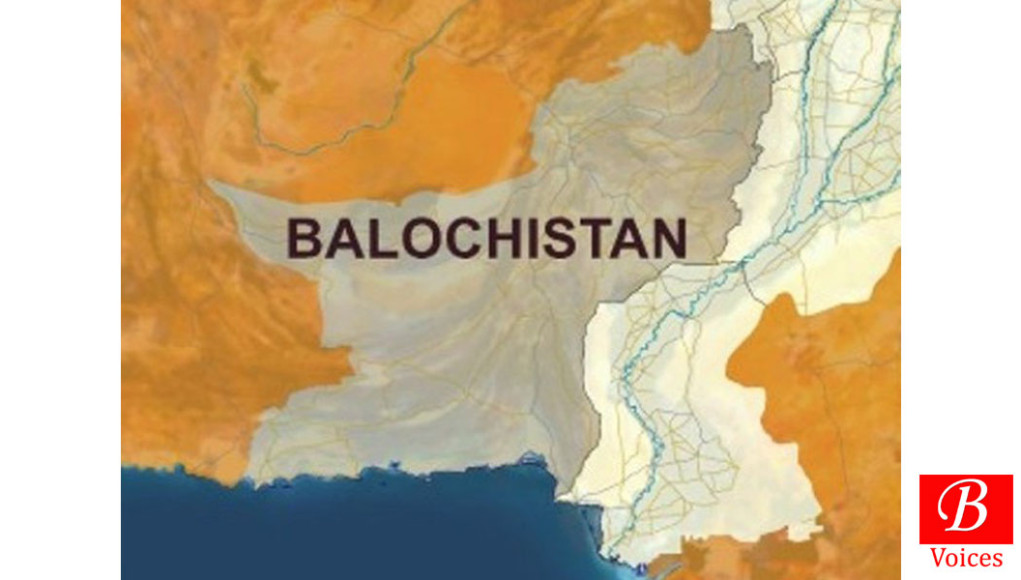The plight of Balochistan’s people has worsened as compared to what it was in 2013. Today, more than 71 percent of people in the province have experienced multidimensional poverty; 88 percent do not have a balanced diet, and more than one million children are out of school. Balochistan has witnessed bad governance, inefficiencies in utilising resources, and massive corruption.
The recovery of Rs630 million from the house of the former finance secretary was just the tip of the iceberg. In this context, the decision to appoint Sadiq Sanjrani as the chairman of the Upper House is in no way a source of joy for the impoverished people of Balochistan. If a member who belongs to the opportunistic elite grabbed this prestigious slot, then it will do little to solve people’s problems.
The people of Balochistan can’t expect Sanjrani to draw attention to the genuine issues faced by Balochistan since he was elected to the Senate and, subsequently, became its chairman under dubious circumstances. Balochistan was far better off when Raza Rabbani was the Senate chairman as he focused on strengthening democracy and protecting provincial autonomy.
Furthermore, the PTI and PPP have pushed the narrative that they chose to elect a Senate chairman from Balochistan because they wanted to address the grievances of the province. Anyone who has followed the political developments within the province will easily recognise the flaws within this narrative. First, appointing a Senate chairman from Balochistan cannot address these grievances – even if it is done in good faith. In this case, this slot appears to have been allotted to Sanjrani through a coordinated effort to prevent the PML-N from obtaining it. As a result, there is no question of anyone doing Balochistan a favour by voting for Sanjrani.
Moreover, Sanjrani’s appointment turned National Party (NP) Chief Hasil Bizenjo into a revolutionary of sorts – at least during the speech that he made after the elections for the Senate chairman and deputy chairman were conducted on March 12. He termed the appointment of the Senate chairman as a black day in the democratic history of Pakistan. He also criticised what he called the manipulation of the Senate elections. Mehmood Khan Achakzai, another political stalwart from Balochistan, said that the polls were unacceptable. Those who don’t know much about Bizenjo and Achakzai might have been impressed with their commitment to democracy. However, this is far from the reality.
In 2013, Bizenjo’s National Party and Achakzai’s PkMAP came into power in Balochistan, allegedly also through manipulations. Both Bizenjo and Achakzai were the beneficiaries THEN. Now that they find themselves on the other side, they have suddenly become political heroes.
Moreover, the performance of the Balochistan government, which was jointly ruled by the PkMAP, NP and PML-N was far from satisfactory. There was no improvement in the lives of Balochistan’s people even though billions of rupees were spent in this regard by the provincial government.
Hasil Bizenjo became the federal minister for ports and shipping by playing the CPEC card. But he failed to take any meaningful steps that benefited Balochistan in any way. Now that Bizenjo and Achakzai are no longer part of the government, they have resorted to rhetoric in the run-up to the forthcoming general elections.
What Achakzai and Bizenjo are doing now has been a recurring problem that politicians from Balochistan have faced from the very outset. Their political tactics tend to focus on the deprivation faced by the people of Balochistan. But once they assume public office, they forget about the needs of the people who voted them into power and start implementing their self-serving agenda. When they are ousted, they blame the establishment and once again focus on the politics of deprivation that brought them into power in the first place.
As a result, people don’t judge these politicians on the basis of their performance when they are in power. These politicians manage to obtain votes by once again exploiting the sense of deprivation felt by the people of Balochistan. This is not a good omen for the people of Balochistan.
The 2018 polls will be an important event for the country. The outcome of these elections and the manner in which they are conducted will significantly affect the direction that Balochistan’s politics takes. If these elections are conducted in the same way that they were held in 2013, then Balochistan will be pushed back by another five years and will face countless difficulties. We must not forget that the manner in which Musharraf rigged the 2002 elections provided an impetus for an insurgency in Balochistan.
Therefore, it is the need of the hour that whoever is calling the shots should ensure that the general elections are not conducted in the same way as the Senate elections. Although the current strategy might help bring a select group of people into the power, it will be detrimental to the people of Balochistan who desperately want relief. This can only be provided by politicians who are democratically accountable. The people of Balochistan will be far better off if a Sanjrani is not pulled on them in the 2018 elections.
This article was originally published in The News
Share your comments!








